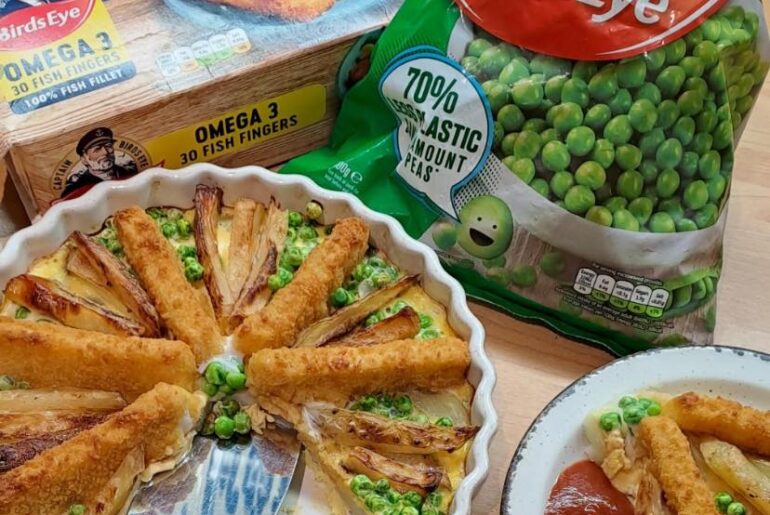Feltham, England-headquartered Nomad Foods, the producer and marketer of well known frozen food brands including Birds Eye, Findus, iglo, Ledo and Frikom in Europe, has announced the results of a twelve-month landmark study that could change temperatures at which frozen products are safely stored, leading to significant cost savings and carbon emission reductions.
The findings, reached with leading food science and technology organization Campden BRI, build on a successful six-month pilot that Nomad Foods announced last summer and further validate the notion that storing frozen food at -15° C, instead of the industry standard -18° C (zero degrees Fahrenheit), can cut freezer energy consumption by 10-11% without any noticeable impact on product safety, texture, taste or nutritional value.

Nine savory frozen products were included in the study: poultry, coated fish, natural fish, vegetables, plant-based foods and pizza. Four temperatures (ranging from -18°C up to -9°C) and eight key areas including food safety, texture, nutrition, energy use and packaging impact were tested. Results showed no significant change to the products at -15°C, albeit for -12°C and -9°C there was a drop in Vitamin C for vegetable products and some changes in sensory performance.
The findings come as the frozen food industry marks100 years since industrial flash-freezing was first introduced by Clarence Birdseye in the United States during 1924. Nomad Foods is now leading conversations with key industry players with the aim of forming an alliance to drive further progress. The business is also looking at its own manufacturing sites to see where it could introduce -15°C.

Stéfan Descheemaeker, Nomad Foods’ chief executive officer, stated: “For 100 years frozen food has played a critical role in bringing great tasting, nutritious, convenient and affordable food to consumers, while minimizing waste. Over the next 100 years, as pressure intensifies to address the global food systems contribution to climate change, I am confident that frozen food can be a key part of the solution.:
He continued: “Frozen food already compares very well against alternatives in terms of carbon footprint. Our study shows there is potential to further reduce energy consumption and carbon emissions when storing or transporting frozen food, with just a simple temperature change. We are working to establish an industry alliance to put these findings into action and, hopefully in time, deliver widespread change. Clarence Birdseye created a new industry and we are very proud to keep improving on his inspiring legacy.”
The British Frozen Food Federation (BFFF) has also hailed the Nomad Foods study as a significant step forward for the frozen industry.

Rupert Ashby, the trade association’s chief executive, remarked: “As we celebrate the 100th year of frozen food, we must recognize our moral obligation to improve sustainable operations and challenge ourselves to see what is possible. We know that warming up the storage temperature of frozen food by just a few degrees could significantly impact carbon emissions, reduce energy consumption, and improve our bottom lines. Such a small change could be an exciting step towards a more sustainable and environmentally friendly industry. Frozen food reduces waste, preserves nutrition, and needs no additives. It’s already a great option for foodservice and retail sectors, as well as for consumers at home. We need the industry to join forces and see what can be achieved to secure the next 100 years of success for frozen food.”

Emma Hanby, associate director at Campden BRI, added: “Our study has comprehensively demonstrated that frozen food producers can safely increase their freezer temperatures to -15°C without compromising the quality and safety of their products. I commend Nomad Foods for leading this study and sharing the findings for the benefit of the whole frozen food sector.”
In addition to investigating temperature changes, Nomad Foods published a life cycle analysis of its leading frozen food products in 2022 which showed that frozen food performs very well against alternatives in terms of carbon footprint, partly due to much lower levels of food waste.






